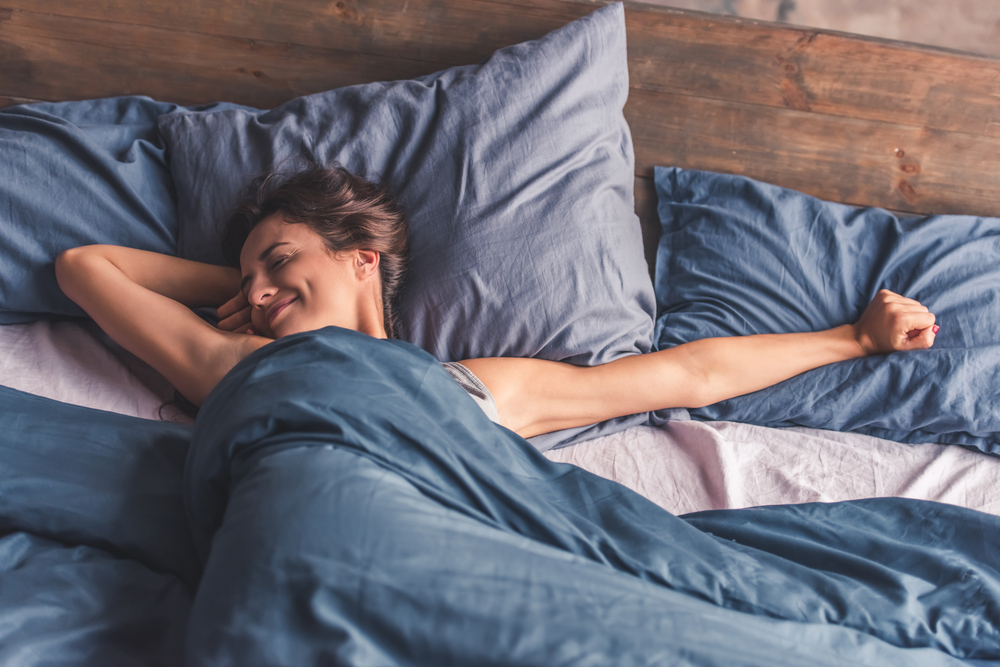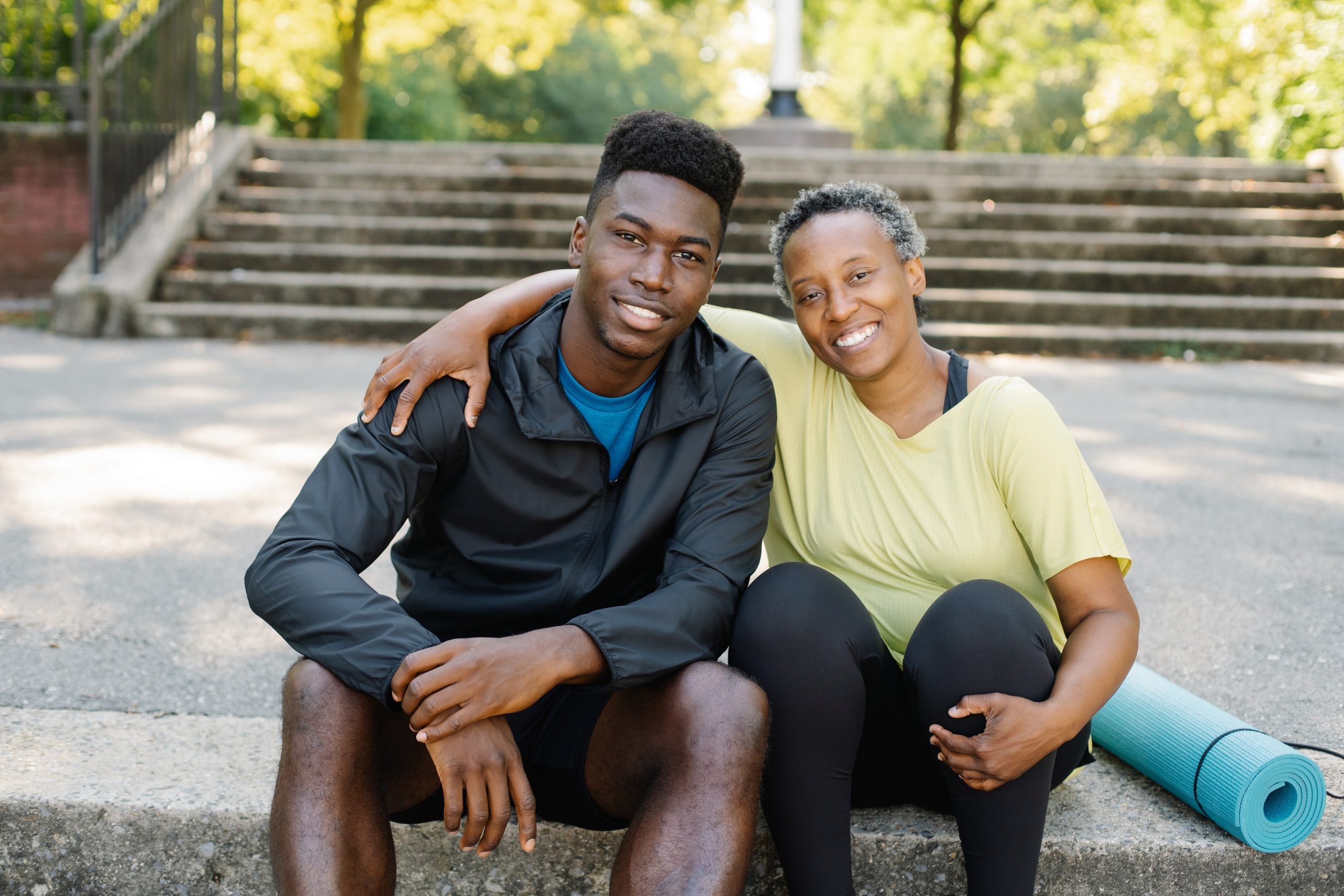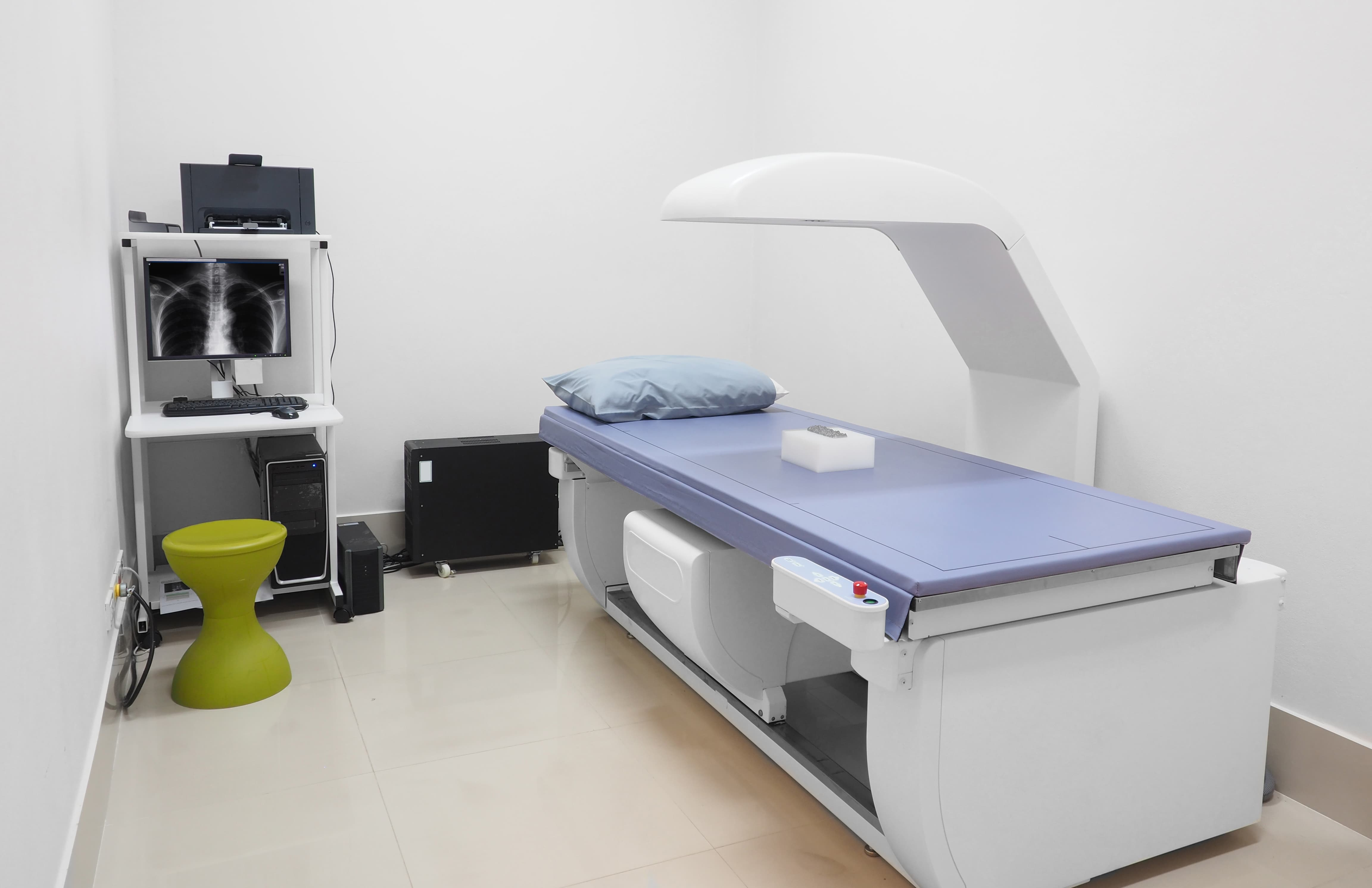Often referred to as the ‘three pillars of health’, exercise, sleep and diet are undoubtedly vital to our longevity and well-being. The issue that most of us have, though, is there never seems to be enough time to prioritise all three.
Instead, we focus on one of the three, hoping that ‘it will be enough’ to keep us fit and healthy. However, the body is a complex mechanism and focusing on one while neglecting the other two leads to adverse health conditions.
Exercise, diet and sleep are equally important to one another. This article will examine why they’re so important to our health and provide practical tips to get the most out of all three.
Exercise and health

Fitness lays the foundation when it comes to health, well-being, and longevity. Not only does it feel great to get outside and ride a bike or go for a walk, but the physical and mental health benefits are invaluable.
The short-term benefits of exercising regularly are bigger muscles, a smaller waist, and reduced risk of disease. However, the long-term benefits like lower blood pressure, stress reduction, and heart health are even more important to our well-being and quality of life.
One study from China conclusively showed that participants in the exercise group showed a 46% reduction in Type 2 Diabetes compared to the non-exercise control group. Another study conducted by Finnish researchers found similar numbers showing that exercise reduced the onset of Type 2 diabetes by 58%.
 Source: National Library of Medicine
Source: National Library of Medicine Finally, a US study again found almost identical numbers showing that regular exercise combined with a balanced diet reduced Type 2 diabetes by 58%.
The benefits of regular exercise:
-
Stronger muscles
-
Fat loss and weight management
-
Cardiovascular health
-
Reduced stress and anxiety
-
Healthy bones
Numerous studies have shown the link between regular exercise and sleep quality. Exercise is categorised as ‘aerobic training’ and ‘resistance training’. Aerobic training includes activities like cycling, running, walking, and swimming, while resistance training comprises lifting weights.
Studies show that aerobic and resistance training is critical in improving the duration and quality of our sleep. These studies show that exercising early morning or afternoon enhances sleep. However, researchers suggest avoiding exercising late in the evening as the adrenalin can interrupt your sleep.
Sleep and health


After a hard day at work, there’s nothing better than lying down on a nice comfy bed and going to sleep. However, one-third of people struggle to get the recommended 7 hours of sleep each night. Sleep is critical for several reasons, one of which is recovery and repair.
Studies have shown that sleep deprivation significantly increases the risk of developing serious health conditions such as heart disease, stroke, and type 2 diabetes. Furthermore, lack of sleep can wreak havoc on your cognitive health affecting your ability to focus and hindering your short-term memory.
The benefits of quality sleep:
-
Recovery and repair
-
Improved cognitive health
-
Reduced risk of disease
-
Weight management
-
Reduced stress and anxiety
People who suffer from sleep disorders have also been shown to overeat, causing weight gain and obesity. This is because sleep deprivation affects certain neurotransmitters that tell the brain when we are hungry. Studies have also shown that lack of sleep is linked to a larger waistline.
Sleep plays an important role when it comes to exercise too. Ensuring your body is fully recovered is paramount to getting a good workout. On the other hand, lack of sleep can lead to poor workouts and an increased risk of sporting injuries.
Nutrition and health


Nutrition plays a critical role in every component of our lives. Consuming a proper diet helps fuel our workouts, quicken recovery, and get a good night’s sleep. Yet, eating a healthy and balanced diet is the one aspect that most of us struggle with.
Additionally, a healthy diet reduces the risk of developing severe health conditions like stroke, heart disease, and obesity. A diet rich in essential nutrients, vitamins, and minerals boosts cognitive health and strengthens the immune system.
One study even showed the powerful effect that consuming dark chocolate has on brain health. The study looked at more than 900 people and found those who ate dark chocolate had significantly improved memory along with other cognitive tasks, such as the ability to focus and concentrate for longer periods.
The benefits of a healthy diet:
-
Increased aerobic fitness
-
Reduced stress and anxiety
-
Boosted immune system
-
Increased longevity
-
Reduced risk of chronic disease
Many people struggle with their diet because of the complexity of combining the right amount of protein, carbohydrates, fats, and fluids. Unfortunately, it’s not just as simple as ‘calories in, calories out,’ but with some research, you can get your diet under control.
Getting the correct amounts of nutrients and the timing right can either make or break your fitness performance. Get it right, and you’ll have the best workout of your life; get it wrong, though, and it can lead to poor performance and even injury.
The food you consume also affects the duration and the quality of your sleep. For instance, alcohol and caffeine can negatively impact sleep, while other foods like fatty fish, nuts and seeds can improve sleep quality.
Sum it up

In today’s fast-paced lifestyle, it’s challenging enough just to eat correctly, let alone get regular exercise and prioritise sleep. However, with some good planning and a strong commitment to your health, it is possible to balance all three.
Remember, just like the chain on a bike, if one link is broken, you can’t ride the bike. The same rings true for sleep, exercise and diet; they’re all equally important. Ensuring you get ample sleep, eat a balanced diet, and work out daily helps to maintain your quality of life and increase your longevity.
Consult your local healthcare provider if you have problems getting the balance right. Nutritionists and exercise scientists have the expertise to design and implement an individualised plan for you.
What to find out more?
In this video, renowned health expert Andrew Huberman Ph.D. offers advice on everything from tips on sleep and exercise to the important role that nutrition plays in getting a good night’s sleep.








